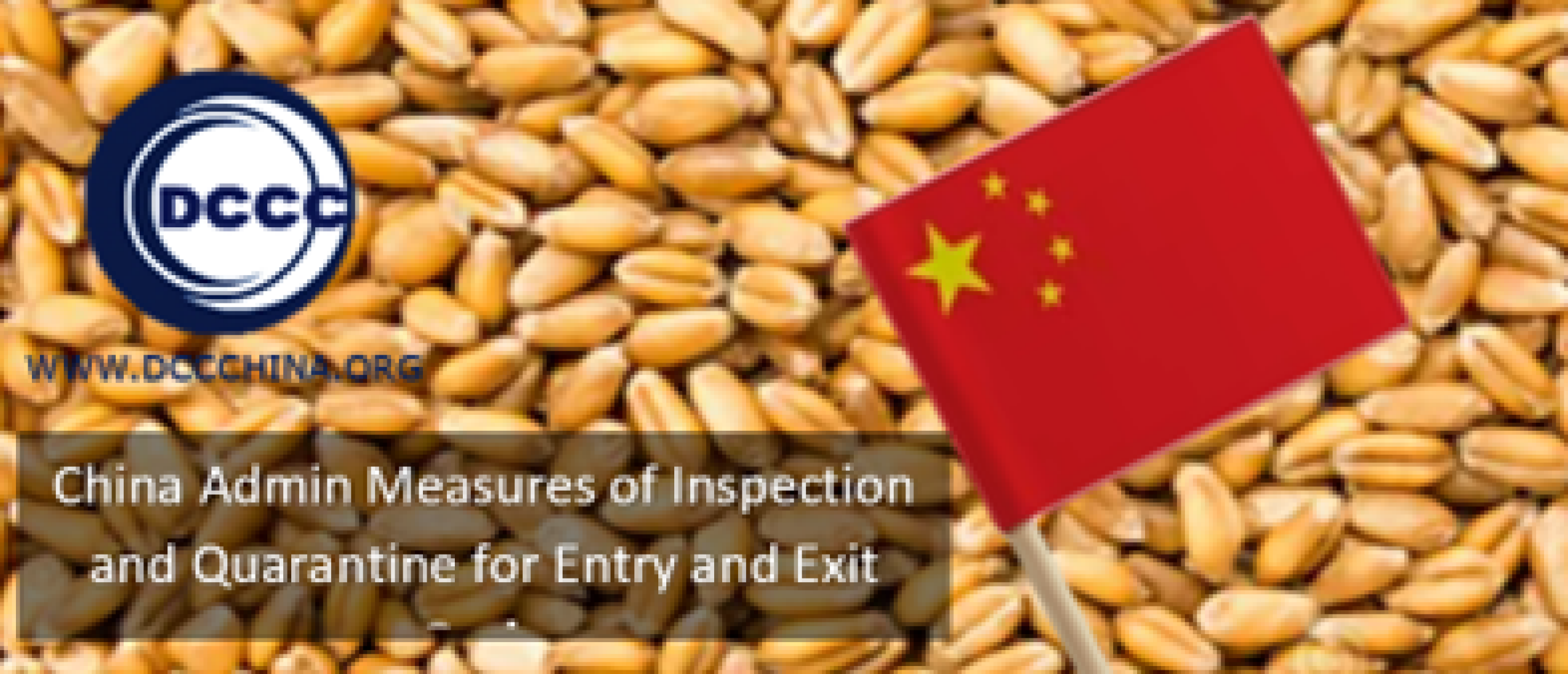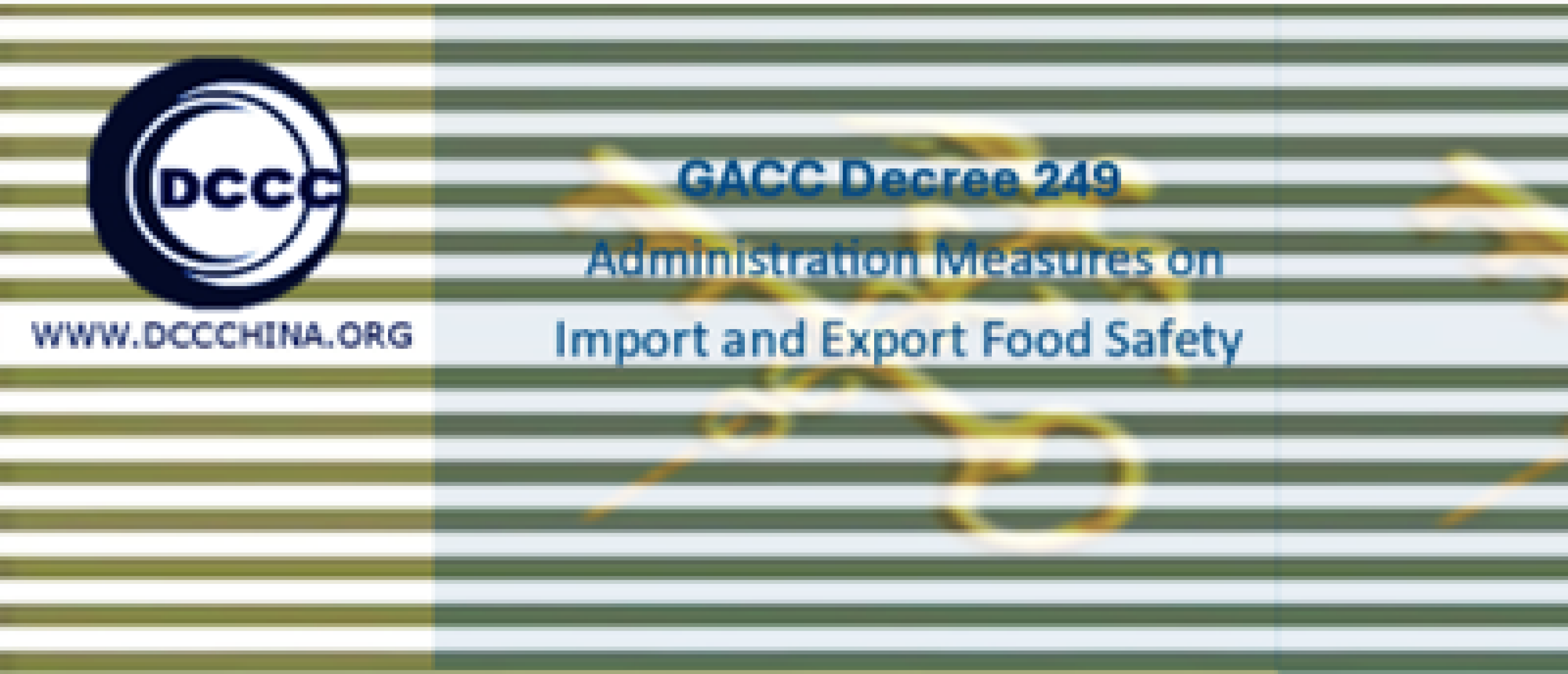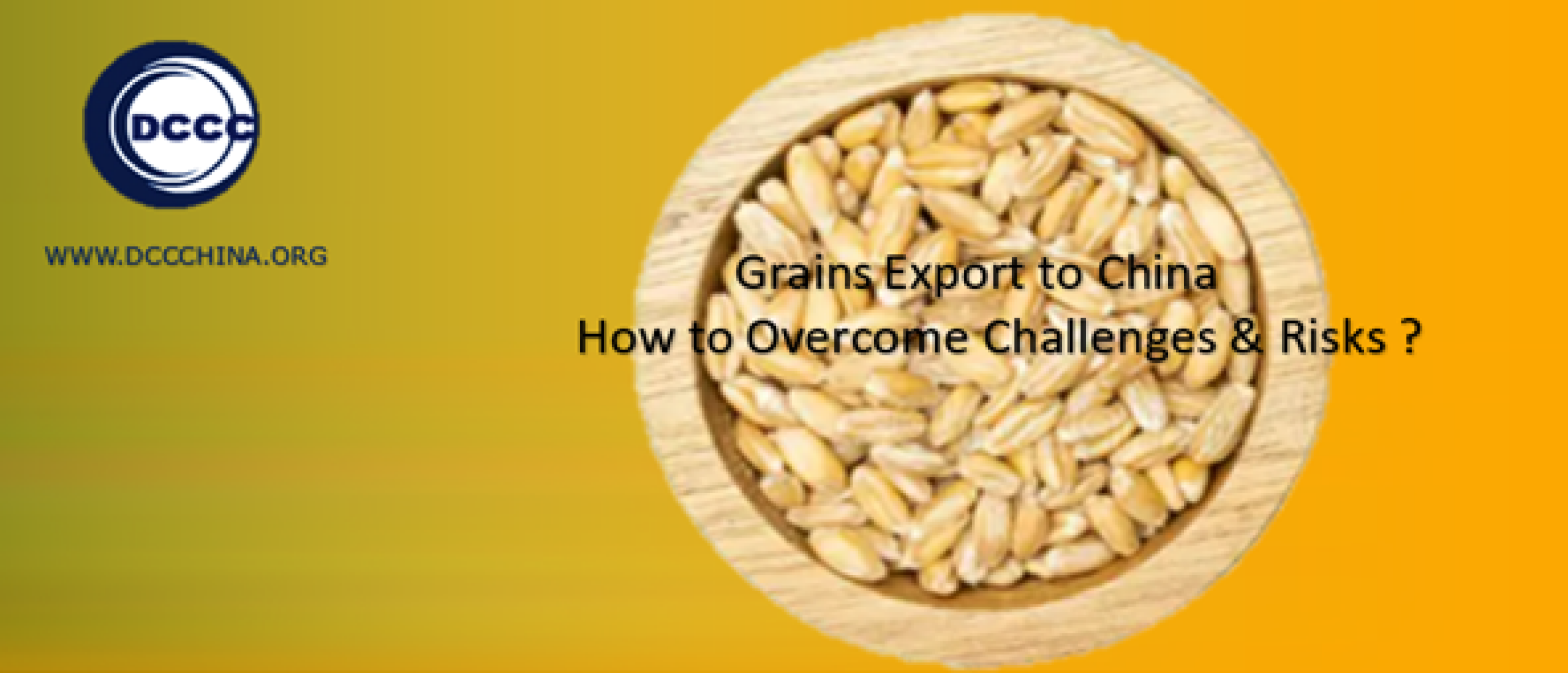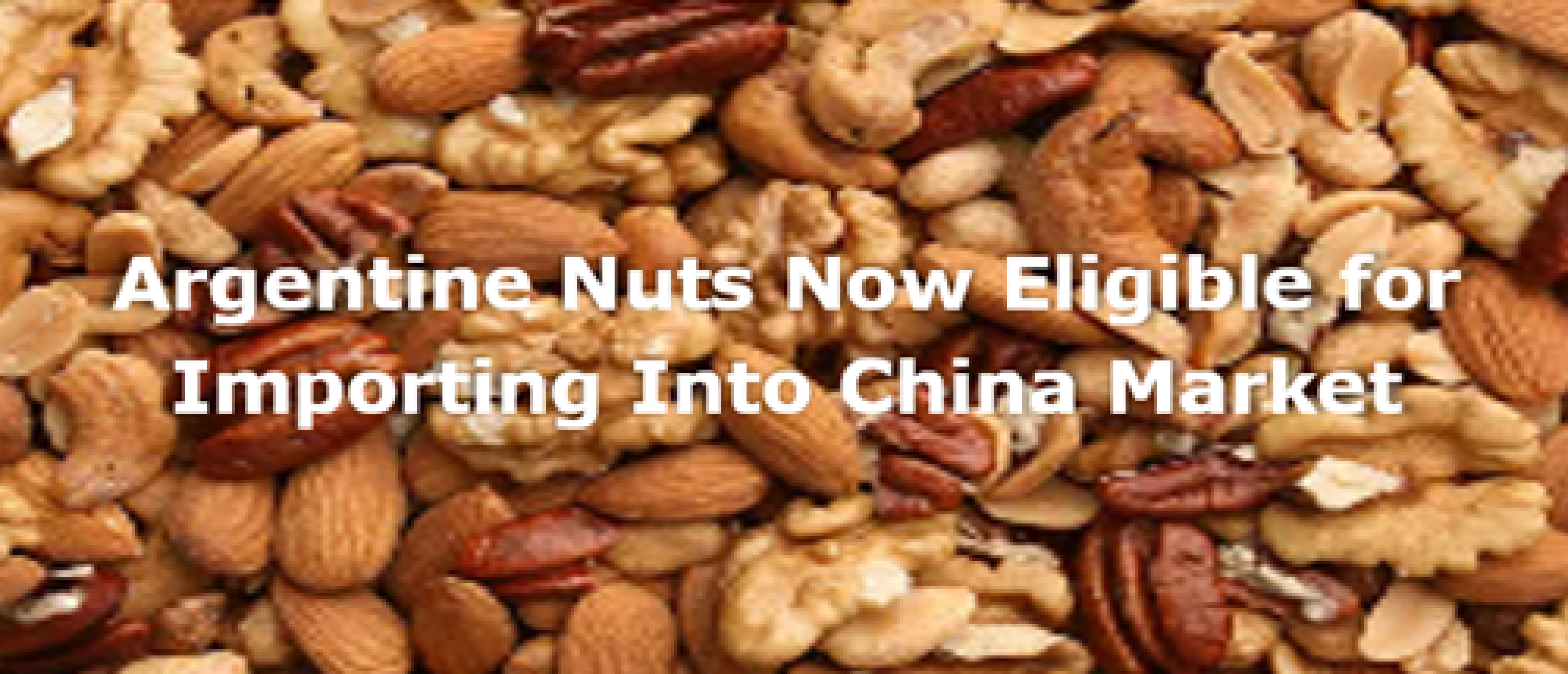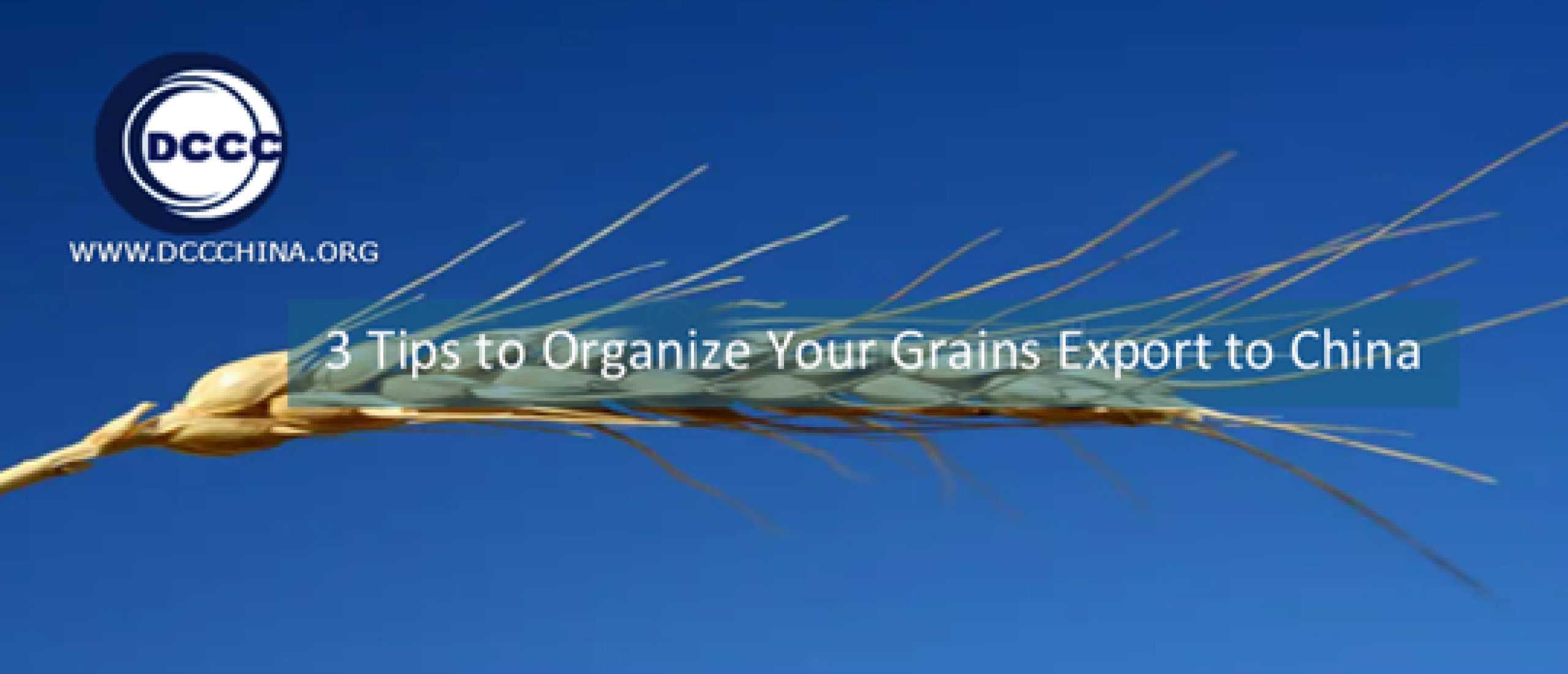
3 Strategic-Tips to Organize Grains Export to China
Understanding Incoterms and shipping terms is crucial for grains exporters looking to send their products to China. Incoterms, short for International Commercial Terms, are a set of rules that define the responsibilities of buyers and sellers in international trade transactions. These terms determine who is responsible for the cost and risk of transportation, insurance, and customs clearance. It is important for exporters to choose the right Incoterm that suits their needs and ensures a smooth and efficient transaction. for related 5 Tips for nuts & seeds suppliers in 2024 to stay ahead of China regulatory changes. Here are the most practical and crucial 3 Tips to Organize Your Grains Export to China.
Tips No. 1 - Understanding Incoterms and Shipping Terms
Tips No. 1 - Understanding Incoterms and Shipping Terms to Organize Your Grains Export to China. When exporting grains, pulses, and oilseeds to China, it is essential to be familiar with common shipping terms used in international trade. These terms, such as FOB (Free on Board), CIF (Cost, Insurance, and Freight), and DAP (Delivered at Place), specify the point at which the risk and responsibility for the goods transfer from the seller to the buyer. Choosing the right shipping term is crucial for determining who pays for transportation, insurance, and other costs associated with the shipment.
One of the most popular Incoterms for exporters of nuts and seeds to China is FOB (Free on Board). Under this term, the seller is responsible for delivering the goods to the port of departure and loading them onto the vessel. The buyer assumes responsibility for the goods once they are on board the vessel. This term is often preferred by exporters as it allows them to control the transportation of the goods up to the point of shipment.
For exporters looking to have more control over the transportation of their goods, CIF (Cost, Insurance, and Freight) is a suitable Incoterm. Under CIF, the seller is responsible for delivering the goods to the port of destination and paying for transportation and insurance. The buyer assumes responsibility for the goods once they are on board the vessel. This term is commonly used for shipments where the seller wants to take care of the coordination and ensure that the goods reach the buyer's port safely.
In conclusion, understanding Incoterms and shipping terms is essential for exporters, growers, producers, and traders of nuts and seeds looking to export their products to China. By choosing the right Incoterm and shipping term, exporters can ensure a smooth and efficient transaction while minimizing risks and costs associated with international trade. It is important to familiarize oneself with these terms and their implications to make informed decisions and effectively navigate the complexities of global trade.
Tips No. 2 - Choosing the Right Shipping Method
Tips No. 2 - Choosing the Right Shipping Method to Organize Your Grains Export to China. Choosing the right shipping method is crucial when exporting nuts and seeds to China. The method you choose can impact the freshness and quality of your products upon arrival, as well as the overall cost of shipping. There are 2 main factors to consider when deciding on a shipping method, including the type of nuts and seeds being exported, the volume of the shipment, and the desired delivery timeline.
One of the most common shipping methods for nuts and seeds is ocean freight. This method is often the most cost-effective for large volumes of products, but it can also take longer to arrive at its destination. If you are exporting grains, pulses, or oilseeds in bulk quantities to China, ocean freight may be the best option for you. However, it is important to carefully consider the transit time and ensure that the products will maintain their freshness during the journey.
For exporters looking to get their products to China quickly, air freight may be the better option. While air freight is typically more expensive than ocean freight, it offers a much quicker delivery time. This can be especially beneficial for exporters of high-value nuts and seeds, or for those who need to meet tight deadlines. When choosing air freight, be sure to factor in the cost of transportation, as well as any additional fees that may apply.
Another option to consider is using a combination of both ocean and air freight. This method, known as intermodal shipping, allows exporters to take advantage of the cost savings of ocean freight while also benefiting from the speed of air freight. By dividing the shipment into smaller quantities and sending them separately, exporters can optimize their shipping methods to meet their specific needs.
The right shipping method for your nuts and seeds will depend on a variety of factors, including the type of products being exported, the volume of the shipment, and your budget. By carefully considering these factors and researching the various shipping options available, exporters can ensure that their products reach China in a timely and cost-effective manner. It is important to work closely with a trusted logistics provider to determine the best shipping method for your specific needs and to ensure that your products arrive in China safely and on time.
Tips No. 3 - Dealing with Customs Clearance and Documentation
Tips No. 3 - Dealing with Customs Clearance and Documentation to Organize Your Grains Export to China. When exporting nuts and seeds to China, dealing with customs clearance and documentation is a crucial part of the process. Understanding the requirements and regulations set by Chinese customs is essential to ensure a smooth and successful export transaction. In this subchapter, we will discuss 3 key tips and strategies for navigating the customs clearance process and managing the necessary documentation.
Primarily, it is important to familiarize yourself with the customs regulations and procedures in China. This includes understanding the various import tariffs, duties, and taxes that may apply to your products. Working with a customs broker or a freight forwarder who has experience in exporting to China can be extremely helpful in navigating these regulations and ensuring compliance.
When preparing your export documentation, accuracy and mindfulness are key. Make sure that all required paperwork, such as commercial invoices, packing lists, and certificates of origin, are completed correctly and in accordance with Chinese customs requirements. Any errors or discrepancies in your documentation could lead to delays or even rejection of your shipment.
Another important aspect to consider when dealing with customs clearance is the labelling and packaging of your products. Chinese customs authorities have strict requirements when it comes to labelling, including mandatory Chinese language labelling for certain products. Make sure that your products are labelled correctly and that the packaging meets all necessary requirements to avoid any issues during customs clearance.
In addition to proper documentation and labelling, it is also essential to be initiative-taking in communicating with your customs broker or freight forwarder throughout the export process. They can provide valuable guidance and assistance in preparing your documentation, coordinating with Chinese customs officials, and resolving any issues that may arise during customs clearance. By staying informed and initiative-taking, you can help ensure a smooth and efficient customs clearance process for your nuts and seeds exports to China.
In conclusion, dealing with customs clearance and documentation is a critical aspect of exporting nuts and seeds to China. By understanding the regulations, preparing accurate documentation, ensuring proper labelling, and packaging, and staying initiative-taking in your communications, you can navigate the customs clearance process successfully and minimize the risk of delays or complications. Following these tips and strategies will help you to achieve a successful and hassle-free export transaction to China.
Recent News on Export Grain, Nuts and Oilseeds to China:
- Kazakhstan sunflower seeds arrive in Zhengzhou on China-Europe Express
- Chilean walnut exports to China continue to grow
- Australia's almond exports to China are expected to rebound significantly
- Kyrgyzstan to export 10,000 tons of walnuts to China this year
- Meeting China's demand for macadamias was positive for the industry
- Chile expands almond market into China
- Why you increase nuts consumption in longer-term to benefit the brain
- China Seed Law set in motion and 2024 China seed congress
- Many farmers to sell directly to China: largest buyers inshell macadamias



